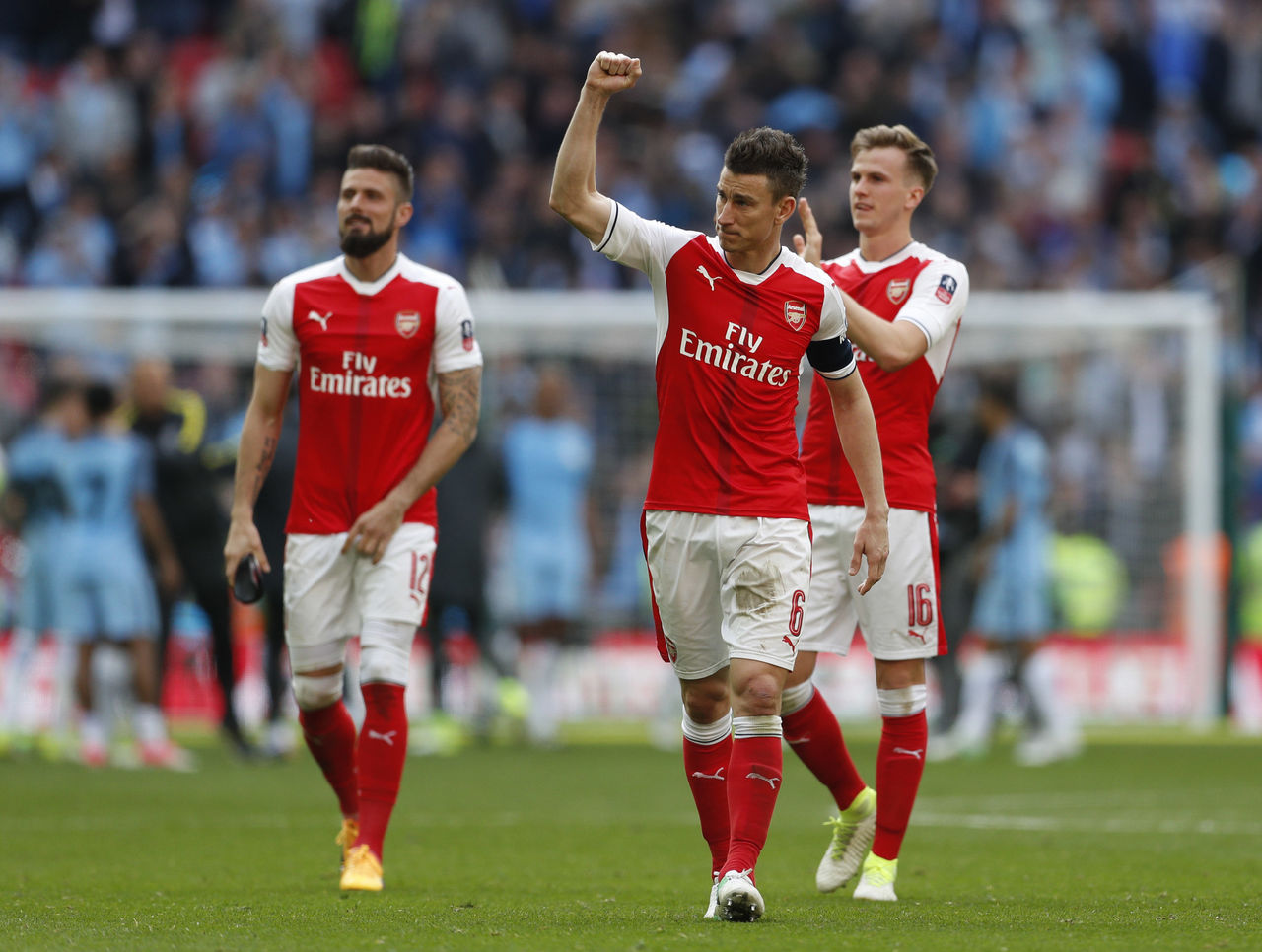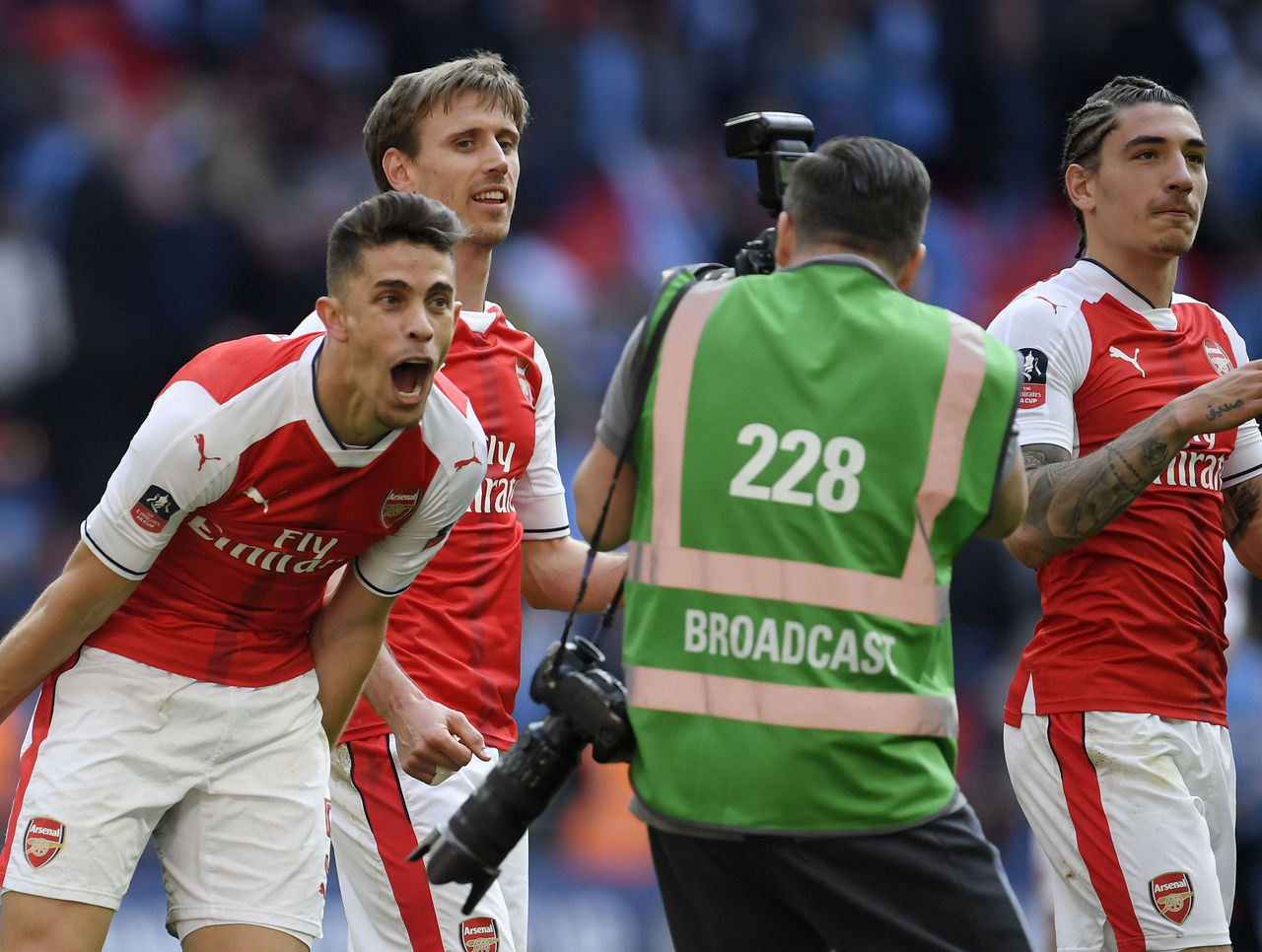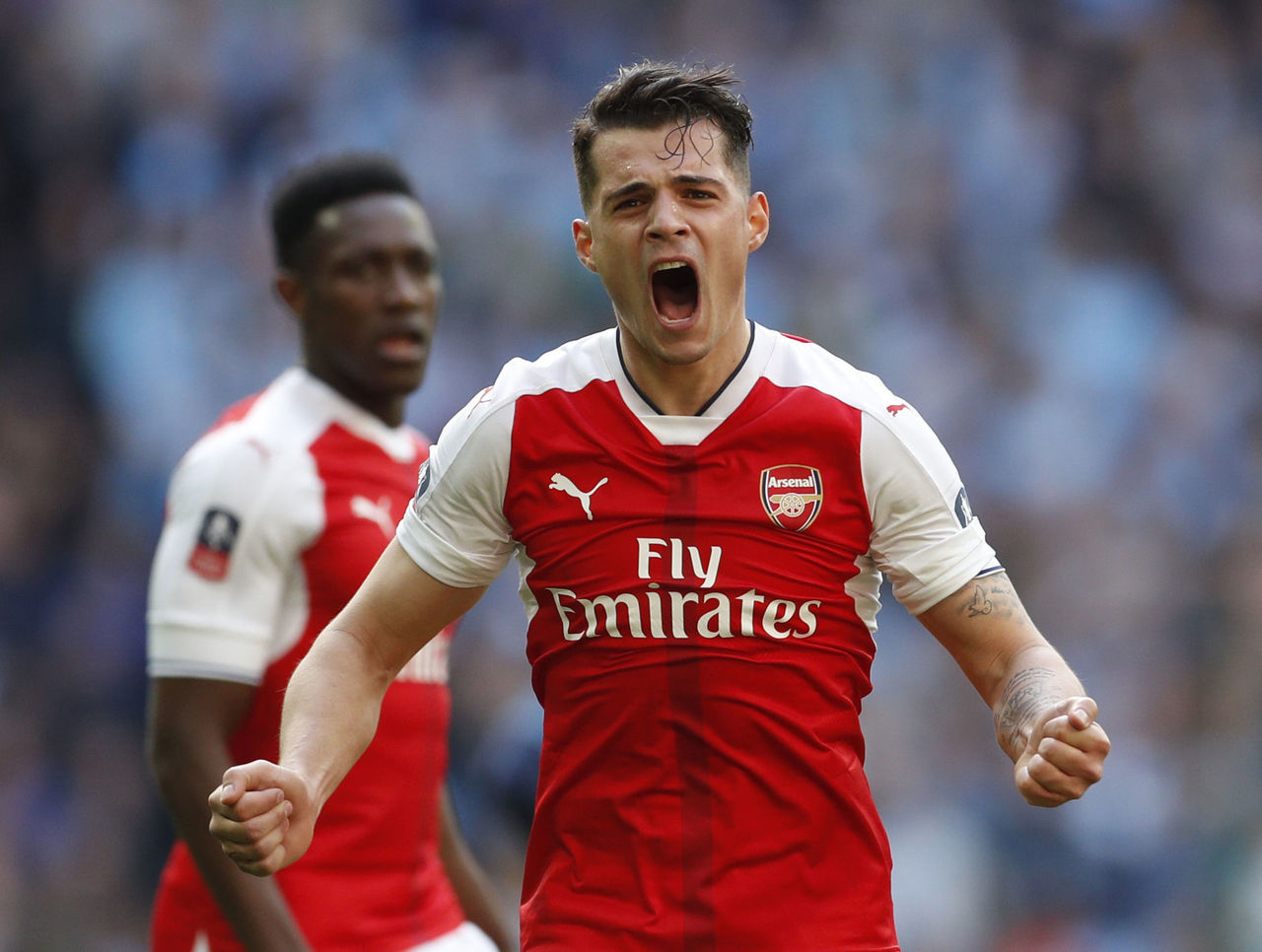Praise where it's due: What Wenger got right in FA Cup victory
In football, sometimes a leopard can change its spots.
After 20 years of supporters and pundits alike asking for a pragmatic, defensive approach, Arsene Wenger has finally conceded, and Arsenal looks better for it.
It's now two matches on the trot that Wenger has tinkered with his tactics, and Arsenal has won both times, with Sunday's semi-final victory over Manchester City marking a record 20th appearance in the FA Cup final.
Related: Arsenal outlasts Manchester City to reach record 20th FA Cup final
If the embattled Frenchman is going to be the subject of banners and pre-match marches when matters aren't faring well, then so too should he get credit where credit is due.
Easy as 3-4-2-1
While it's not quite an incarnation of George Graham's "1-0 to the Arsenal" era, Wenger has defied expectations by employing a formation that actually appears resistant to conceding.
Used against Middlesbrough last Monday for the first time since 1997 - Wenger's first year with the club - the 3-4-2-1 formation has alleviated Arsenal's tendency to surrender avoidable goals.
In England, the formation has become all the rage. Chelsea has vaulted atop the Premier League table using it, with Antonio Conte opting for it after Arsenal thrashed the Blues at the Emirates in September. Mauricio Pochettino has used it as well with Tottenham, and it has played a major factor in Spurs' title chase.

That's not to say that it works for everyone, and when the teamsheets were released last Monday an hour prior to kickoff, elation at Wenger's newfound adaptability was paired with unadulterated fear as Laurent Koscielny was flanked by the oft-maligned Gabriel and the hardly used but remarkably affordable Rob Holding.
On Sunday, Wenger opted for the same three players, and it paid dividends. Arsenal defenders won 24 aerials to City's 15, and the Gunners had 31 clearances and blocked 21 shots. If the centre-backs were organised and on point, the two wing-backs were the stars. Alex Oxlade-Chamberlain and Nacho Monreal were nothing short of stellar, combining for the 71st-minute equaliser while repeatedly getting the better of Jesus Navas and Gael Clichy.
Related - Wing-back to wing-back: Ox, Monreal push FA Cup semi into extra time
After the victory at the Riverside, Wenger conceded that the back-three would "not be a long-term plan." It may be time to reconsider that.
Faith in personnel
Gabriel is not good enough for Arsenal. Monreal lacks pace and is not the pedigree of a club with title ambitions. Oxlade-Chamberlain is short on confidence and is too erratic to wear the seminal red kit.
Variations of these claims have spun like a broken record, and still, Wenger stuck with his charges.
On Sunday, the three aforementioned players were arguably Arsenal's best. Monreal's goal breathed life into the match, and all four of his tackles were pivotal. Gabriel barely put a foot wrong as part of the back-three, and the Brazilian put in a massive performance with seven clearances, three interceptions, and a pair of successful aerial duels and the Ox has recreated himself for the second time this season, to stunning results. Named Man of the Match, the winger-cum-central-midfielder-cum-wing-back has been one of the club's best players in 2017.

Many wouldn't have stuck with the 23-year-old Southampton product like Wenger has, and for that, he deserves heaps of acclaim. The Frenchman spoke about Oxlade-Chamberlain earlier in the week, and amid speculation of a summer move to Liverpool, the gaffer insisted that his pacey player stick around for another 10 years.
"He looks like he is on an upward curve. He has had little problems always, but now he’s getting a little stability and more freedom to play," Wenger admitted.
That stability is courtesy of Wenger's faith in the England international, and on Sunday, it was repaid with a stunning performance that guided Arsenal to an uncharacteristically tenacious victory.
"We went through a difficult period. I will talk one day about that. The players showed great togetherness and found the answer," Wenger said after the match.
Shrewd schemes
To the surprise of anybody who has watched five minutes of Arsenal football the last two decades, the performance against Manchester City must have felt like a foray into the bizarro.
Instead of trying to walk the ball into the net following a dozens of passes, Arsenal took a more direct approach, opting to profit from crosses and corners rather than pace and panache. The counter-attack was the method of choice, as City was allowed to savour the majority of possession. Pep Guardiola's charges had 64 percent of the ball.
City made 743 passes at Wembley, an astounding 358 more than Arsenal. Yaya Toure led all players with 132 passes, while an uncharacteristically refined Granit Xhaka was tops among Gunners with 49.

For a manager who is accused of being stubborn, Arsene Wenger was selective Sunday, sticking with players he believes in while opting for tactics and formations alien to Arsenal's last 20 years, and for that, the manager deserves loads of credit.
Perhaps Aaron Ramsey, who like his manager has been the subject of derision this season but performed well at Wembley, said it best when asked about the performance Sunday.
"We have let him (Wenger) down at times this season, we want to win it for him and ourselves."
And to think, pundits said that Wenger lost the dressing room. Hardly.
If there's one takeaway from Sunday's match that would suggest Wenger is still fit for the job, it's that the result matters more than the method.
Arsenal displayed exactly that to advance to a third FA Cup final in four years. Perhaps Wenger is finally realising that football doesn't have to be pretty to work.
(Photos courtesy: Action Images)